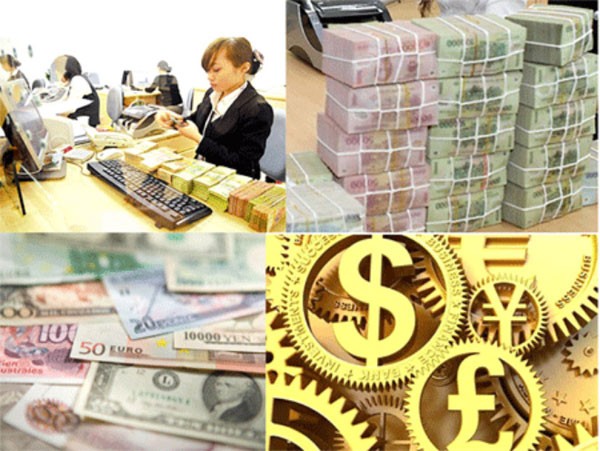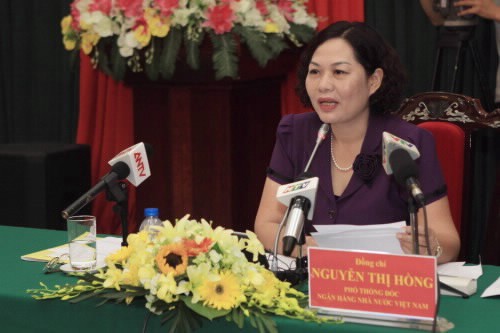(VOVworld) – Vietnam’s banking sector has pursued a flexible monetary policy, helping to drop interest rates and increase credit to an appropriate level. The exchange rate has been stabilized with an increase in the foreign reserve, supporting business production. In 2016, the sector will continue proactive and flexible measures in monetary policy management matching market growth.
 |
| Vietnam’s flexible exchange rate management in 2015 helped to drop interest rates and increase credit to an appropriate level. |
In 2015, the State Bank of Vietnam’s money supply increased 13.5%, harmonizing interest rate reduction, reasonable credit increase, and bad debt settlement.
Although the interest rate was cut, capital mobilization remained high, enabling credit institutions to provide credit capital for the economy.
Stabilization of the monetary market was also due to other central bank measures to support the liquidity of credit institutions, restructure assets, and give high priority to liquidity risk management.
Vietnam adjusted the average inter-bank VND/USD exchange rate 1% and expanded the exchange rate margin to 3%.
Bui Ngoc Bao, President and General Director of the Vietnam National Petroleum Corporation (Petrolimex), said stabilization of the exchange rate and forex market will increase confidence in Vietnam’s currency and support the international integration of domestic enterprises during the current devaluation of the Chinese Yuan and the current decline of petroleum prices.
He explained the corporation’s “financial expenses in 2011 were about 90 million USD. Last year we spent only 22.5 million USD. That means our expenditures are smaller and more stable, creating more favorable conditions for the enterprise.”
This year the sector will continue to focus on monetary policy, hold inflation under 5%, and ensure an economic growth of about 6.7%. Flexibility in the exchange rate adjustment will be given priority.
 |
| SBV’s Deputy Governor Nguyen Thi Hong |
Deputy Governor of the State Bank of Vietnam Nguyen Thi Hong said “management of the exchange rate and the interest rate should be in accordance with the macro-economic balance and the development of the global financial market enabling us to raise the status of Vietnam’s currency. Credit management should increase credit strictly in line with safety and effectiveness. In the future, the SBV will apply a new, more flexible method of managing the exchange rate towards stabilizing the foreign exchange market and the national macro-economy.”
The State Bank of Vietnam will continue restructuring credit organizations and settling bad debts as set in the plans which have been submitted to the government. Inspection and supervision will be strengthened and focus placed on improving credit quality.
In 2016, the central bank will also apply safe standards in line with international norms to enhance the safety of the national monetary system, which will go along with the market-ruled exchange rate management. The monetary policy will be flexibly implemented to stabilize the Vietnamese dong and the macro economy, control inflation, and utilize capital resources efficiently.